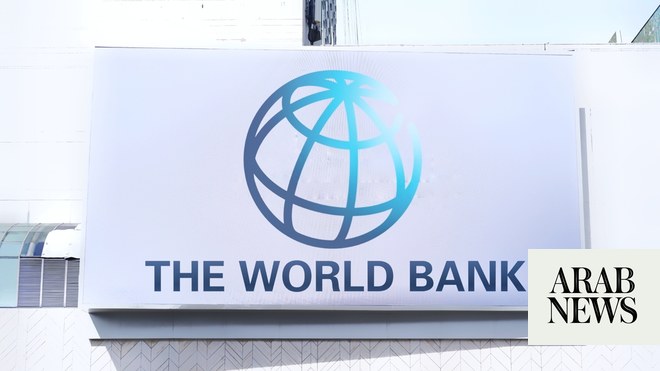Riyadh’s Meteoric Rise Set to Make It One of the Fastest-Growing Cities Worldwide by 2033
Riyadh, the bustling capital of Saudi Arabia, is anticipated to ascend into the ranks of the top 15 fastest-growing cities globally by 2033. This projection is largely supported by a significant 26 percent increase in the city’s population and sustained government investment in infrastructure.
Population Surge and Vision 2030
According to the Savills Growth Hubs Index, Riyadh’s population is expected to swell from 5.9 million to 9.2 million in the next decade. This rapid growth will necessitate substantial enhancements in amenities and services. Riyadh’s burgeoning development is inextricably linked to Saudi Arabia’s Vision 2030—a comprehensive plan aimed at transforming the capital into a foremost residential and business hub while diversifying the national economy and minimizing reliance on oil.
Richard Paul, Head of Professional Services & Consultancy at Savills Middle East, remarked on the demographic potential of the Kingdom: “Saudi Arabia boasts a population of around 36 million people and, astonishingly, 67 percent are under the age of 35. The employment potential and ultimate spending power of this segment of the population over the next decade are enormous.”
Economic and Corporate Growth
The Savills report underscores the vitality of Riyadh’s office market, bolstered by regional headquarters demand, and highlights the burgeoning retail sector driven by the city’s rising tourism. The business development scene is equally compelling, with over 120 international companies relocating their regional headquarters to Saudi Arabia in the first quarter of 2023 alone—marking a 477 percent year-on-year increase.
As part of the regional headquarters (RHQ) program, Saudi Arabia has rolled out enticing incentives for multinationals, including a 30-year exemption from corporate income and withholding taxes related to headquarters activities, along with various discounts and support services.
Leading Companies and Strategic Moves
Numerous global corporations have established their regional headquarters in Riyadh, signaling growing confidence in the city’s economic prospects. Prominent names include Northern Trust, Bechtel, Pepsico, IHG Hotels and Resorts, PwC, and Deloitte. In June, PayerMax, a global payment solutions provider, expanded its regional headquarters to the capital. Co-founder Wang Hu lauded the strategic move as "a long-term dedication to Saudi Arabia and the surrounding region."
EY also joined the roster of international firms in June, establishing its regional headquarters in Riyadh. Abdulaziz Al-Sowailim, EY MENA Chairman and CEO, affirmed, “EY is proud to be playing a part in the innovative and cutting-edge strategies that are elevating KSA’s position as a trailblazer, both regionally and globally.”
Ramzi Darwish, Head of Savills in Saudi Arabia, elaborated on the impetus behind Riyadh’s meteoric rise. “The 30-year tax relief for regional headquarters, expanding market, and promising prospects are attracting international companies and reinforcing Riyadh’s position as a vital regional hub for leading businesses across diverse industries.”
Foreign Direct Investment and Regional Development
Data from the UK-based real estate consultancy firm Savills reveals a surge in foreign direct investment into the Kingdom by 5.6 percent in the first quarter of 2023, amounting to SR9.5 billion ($2.53 billion). In 2023, over 180 foreign companies have established their regional headquarters in Riyadh, surpassing the initial target of 160 firms. This growing confidence among international companies underscores the robust potential of the Saudi capital.
According to an analysis by S&P Global, the introduction of free economic zones and the RHQ program could further accelerate foreign direct investment inflows into the Kingdom. Earlier this year, Saudi Arabia’s Small and Medium Enterprises General Authority also emphasized the considerable boost the RHQ program has given to Riyadh’s economic growth.
Global Recognition and Future Prospects
Saudi Minister of Economy and Planning, Faisal Al-Ibrahim, highlighted Riyadh’s successful bid to host EXPO 2030, portraying it as a testament to the Kingdom’s commitment to sustainable economic and social development. The international event is expected to further bolster Saudi Arabia’s standing as a leading global destination for business, tourism, and innovation.
Additionally, a report from Henley & Partners in June projected that over 300 millionaires will relocate to Saudi Arabia in 2024, with Riyadh and Jeddah becoming increasingly popular among high-net-worth individuals.
A Comparative Global Perspective
The Savills Growth Hubs Index, in tandem with the Resilient Cities Index, evaluates economic strength and forecasts trends up to 2033, spotlighting cities experiencing robust growth in wealth and economic expansion. Indian and Chinese cities dominate the list, with Riyadh standing out as the sole non-Asian city.
Paul Tostevin, Director and Head of Savills World Research, noted the economic shift from West to East and its implications for real estate. “The new centers of innovation will become magnets for growing and scaling businesses, underpinning demand for offices, manufacturing, logistics space, and homes.”
Savills’ analysis emphasizes that the economic transformation in Asia, driven by technology and a rising middle class, underpins the region’s dominance in the rankings. Simon Smith, Senior Director of Research & Consultancy at Savills, emphasized the ongoing significance of traditional manufacturing alongside new drivers of growth.
Conclusion
Riyadh’s anticipated inclusion among the fastest-growing cities globally by 2033 underscores the city’s burgeoning potential and the effective implementation of the Vision 2030 program. With significant population growth, a surge in international corporate presence, and robust infrastructural investments, Riyadh is poised to become a pivotal global hub for business, innovation, and tourism.
For more information about companies mentioned in this article, visit Savills.
